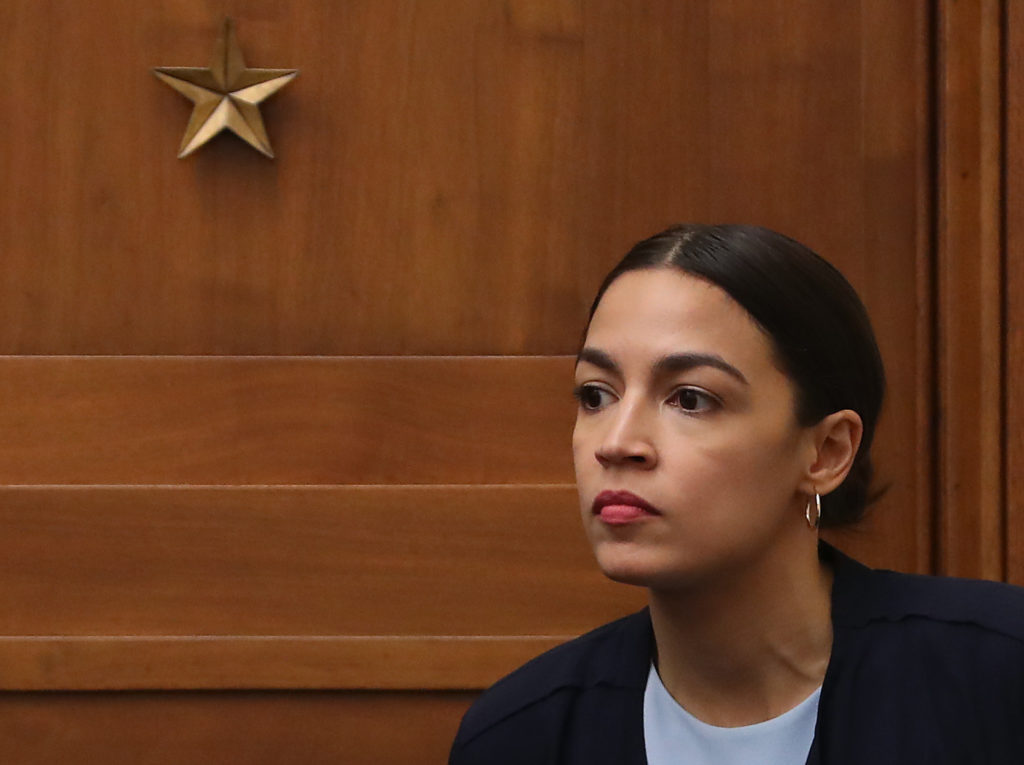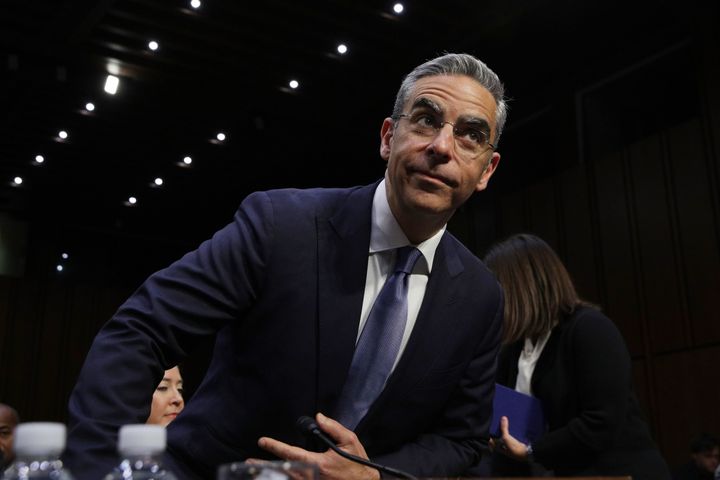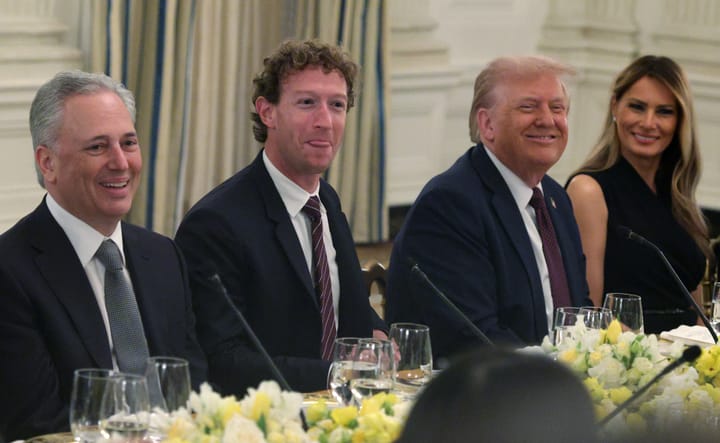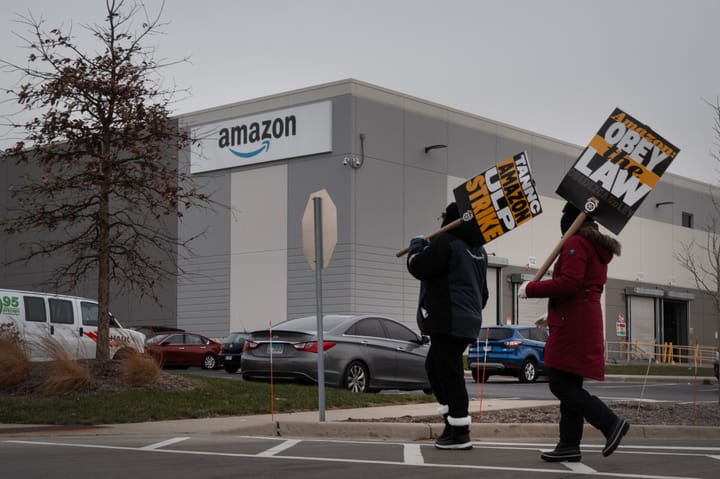This piece was authored by Max Moran, research assistant at the Revolving Door Project.
Congress finally knows that Facebook runs ads.
That was the takeaway from a brutal week on the Hill for Mark Zuckerberg’s tech behemoth, and to a lesser extent, the other members of the so-called Big Four (Apple, Google, and Amazon). Facebook faced hearings in the Senate and House banking committees over Libra, its proposed online currency, and it joined the other firms for a hearing about monopoly power on Tuesday afternoon.
Senators flopped spectacularly when they questioned Zuckerberg last year, demonstrating ignorance about the absolute basics of how the tech titan makes money. Not so this week. On both sides of the aisle, congressional leaders asked sophisticated questions about data security, regulation-dodging, and the public’s basic lack of trust in Facebook.
But while we were glad to see scrutiny of Libra and tech more broadly this week, it should not count as a victory that lawmakers finally understand the basic business model of one of the most powerful forces in the American economy. Nor are we reassured that future Big Tech ventures into a global currency — perhaps from a better-prepared company, like Amazon — will face the same level of scrutiny. While Washington is waking up to the problems of Big Tech, it’s been asleep at the wheel for too long, allowing these firms to amass unprecedented power.
This is not just because most members of Congress are old. It is the predictable result of a Big Tech’s well-funded political strategy. Today’s tech titans have learned from the apathetic missteps of Bill Gates and Microsoft in the 1990s.
Over the last decade, Silicon Valley billionaires have planted seeds across Washington to grow both “soft” and “hard” power in Washington that helps shield them from full accountability for their misdeeds. This takes many forms, most obviously hiring lobbyists— Big Tech is now one of the largest employers of professional influencers in Washington—and making campaign contributions. But it shows up in more subtle ways, too. Look at the funding partners of most major tech and economic think tanks, and Facebook, Google, Amazon, and Apple pop up time and again. Look at the most prominent tech-oriented activist and advocacy groups, and you’ll see similar corporate backers.
The goal is not just influencing Congress, either. While there is no single tech-focused executive branch agency, tech companies routinely snap up departing staff from the Federal Trade Commission, Federal Communications Commission, and Department of Justice for lobbying and legal counsel jobs — a revolving door that undermines the oversight functions they themselves used to execute. At this week’s antitrust hearing, Amazon and Apple’s spokesmen were each ex-government antitrust lawyers. These commissions also host panels intended to provide external advice from companies, non-profits and consumers on how to regulate emerging technologies. In June, the Project on Government Oversight revealed that at least one of these panels is conspicuously packed with Silicon Valley voices. President Trump’s top technology adviser used to work for the right-wing tech financier Peter Thiel, and President Obama’s fondness for Google led one observer to describe the private company as the White House’s IT desk.
The Big Four now dominate the American economy, and they have never faced scrutiny in Washington commensurate with their complexity and power. Until this week. But that can easily change.
Faced with antitrust attention, tech firms are now cozying up to Washington’s traditional allies of big business. Google’s own disclosures show donations to the American Enterprise Institute, the Cato Institute, and National Review. That hasn’t stopped the firm’s checks to the Center for American Progress or the Consumer Federation of America—like most big businesses, Google plays both sides.
The Koch Brothers have sprung to the Big Four’s defense too, through sudden letters to Congress on narrow technology concerns, and contributions to the same tech cheerleaders in the think tank and advocacy worlds. Even as conservative congressmen rant to the cameras about unproven bias in search results and social network performance, they’re happy to take checks from those same firms. And unlike Washington, Silicon Valley is playing the long game: by wooing young, ambitious politicians like Pete Buttigieg, the tech industry aims to secure a new generation of lap-dogs in Washington, even as the old guard finally starts barking. Then of course, there’s good old-fashioned astroturfing.
Consider that while the Congressional hearings may have revealed growing agitation with Tech lawbreaking, last Friday’s FTC fine against Facebook was so insufficient that tech publication The Verge called it “an embarrassing joke.” It was the largest fine any tech firm has received in the Commission’s history, and it was barely a fraction of Facebook’s profit so far this year. The company’s stock price even rose as the news was breaking! So let’s not count Big Tech out just yet.
Real reform of the Big Four tech firms, and strong safeguards against any future Silicon Valley companies reaching their current level of power, will require politicians to address the full scope of the issue. For sure, they need to educate themselves about technical elements of the Big Four’s business models. Rebuilding the Office of Technology Assessment, as even some tech-backed groups have proposed, would help. But lawmakers also need to see these firms’ massive power as a problem in itself.

While many members of Congress asked crucial questions at the Libra hearings, only one Representative really tackled the issue through the lens of corporate power. Rep. Alexandria Ocasio-Cortez (D-NY), the self-described democratic socialist and youngest representative ever elected, pressed Facebook’s David Marcus on whether currency is a public good and compared Libra to scrip. She was willing to tackle the disease, not just treat the symptoms. Even if Libra was better explained and better regulated, it seems Ocasio-Cortez would still have objected simply because it’s wrong for a few giant companies to decide they can create a global currency. We effusively agree.
At root, Big Tech is a problem because bigness is a problem. A few hyper-dominant firms have outsized control over the engines of the new world economy, and thanks to a well-oiled (well-coded?) influence machine, they may get away with it. For Washington to have any chance of facing the task, it first needs to understand just how it’s being duped: where are the Big Four spending their money in the Beltway, and how does that impact the information which reaches lawmakers’ eyes?
This piece was authored by Max Moran, research assistant at the Revolving Door Project.



